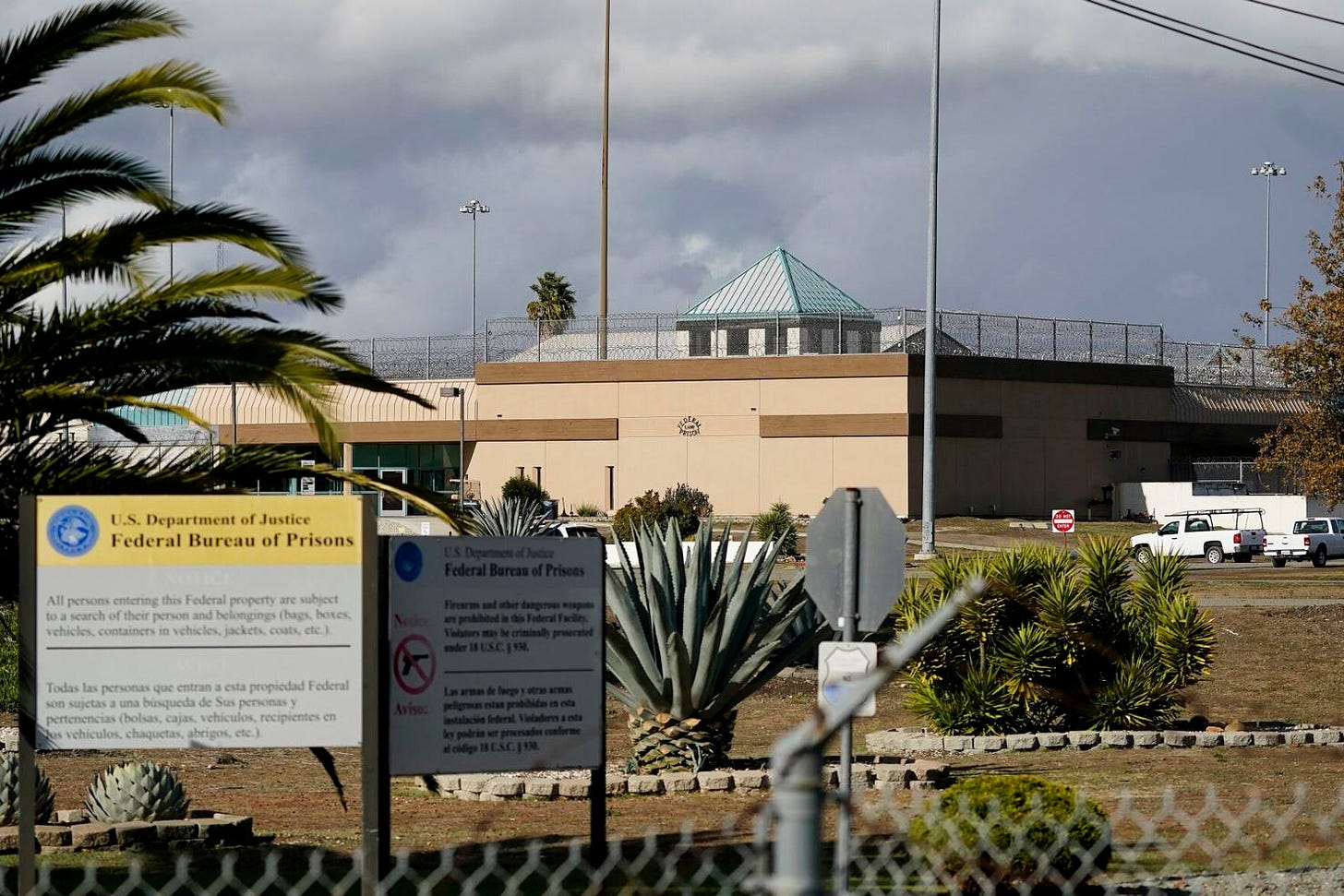Fed's Close Prisons: ''Squalid, Unsafe Conditions'' Cited.
According to reporting from Associated Press, ''The U.S. Government is Closing a Woman's Prison and Other Facilities After Years of Abuse and Decay''. (Michael R. Sisak and Michael Balsamo, AP Dec. 5,
The federal government is facing the same crisis as Massachusetts, and many other prison systems across the country: squalid, unsafe conditions. Years of neglect have trampled these old prisons. Institutions locked in the past. Immutable. Change is coming because money is drying up.
In Souza-Baranowski Correction Center, a maximum security institution, and all Massachusetts Correction Facilities, lax security and staffing shortages contribute to dangerous living conditions. Gang culture is out-of control. In September two guards were stabbed during a bloody attack. Five Correction Officers went to hospital.
Problems plaguing Federal Correction institutions are the same systemic problems facing every prison in Massachusetts. State prisons are notoriously unsafe, crumbling and in need of essential reform and repair.
Recently, MCI-Concord, the Commonwealth's oldest prison - built just after the Civil War - was shuttered. Like federal government prisons, Massachusetts has closed most of its minimum security institutions. And, the treacherous Walpole State Prison, MCI-Cedar-Junction, closed in 2020. Bay State Correction Facility closed in 2015, today it's transitioned to a ''migrant'' care facility.
Federal prisons are closing for similar reasons. Security and infrastructure assessments demand most closings. Low staffing or persistent staffing shortages are reasons for further consolidation. Prisoners are moved from prisons to prisons which grow quickly overcrowded.
Overcrowding exacerbates violence and other system horrors. Massachusetts recently arrested a Correction Officer who was smuggling synthetic drugs into MCI-Shirley, a medium security 1200 man institution.
Federal prisons may release inmates under the Second Chance Act signed into law under President Donald Trump. States like Massachusetts do not have such legislation. Instead, Massachusetts offers various diversion programs. But, while many accused can accept plea bargains, accused who elect to go to trial are given stiff, long prison sentences if convicted.
So a suspect of a crime in Massachusetts can accept a plea bargain of a few years behind bars for a serious crime - while a suspect who believes in their innocence, goes to trial, and if convicted by a jury - is sentenced to many, many more years. Those accused, who may not be guilty, could be serving decades for exercising their right to trial. This is the real injustice which is ignored.
Closing prisons is only a part of the solution. Judicial reform is essential. Prosecutors overcharge suspects - in anticipation of plea bargain agreements. Prosecutors overcharge suspects with a litany of charges and indictments in an effort to settle for a plea on one crime with negotiated sentences. Anyone who ever watched an episode of Law and Order understand this prosecutorial gambit.
Maybe, President Donald Trump will turn this prosecutorial abuse on its head during his administration. After all, President Trump has first hand experience with malicious prosecution. And, many Americans have grown sick and tired of prosecutorial power destroying lives, families and generations.



